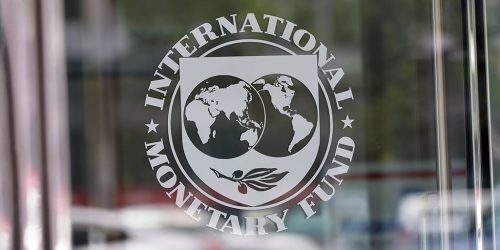ISLAMABAD: The International Monetary Fund (IMF) linked the resumption of Extended Fund Facility Programme to “clear” plan of power tariff adjustment, mobilization of taxes as well as amendments in the National Electric Power Regulatory Authority (NEPRA) for quarterly adjustments in tariff and changes in the State Bank of Pakistan (SBP) law.
Background interaction with officials of Finance Ministry revealed the government wanted to remain in the IMF programme but at the same time some requirements are to be fulfilled as the Fund has been seeking firm commitments from the economic team with regard to improvement in tax system and adjustment in electricity prices. The Fund also wants a firm understanding on changes in the Nepra and SBP laws with implementation timeline.
Additionally, the Fund has also been concerned at the mechanism of petroleum prices adjustment. According to officials, this requires time to satisfy the Fund. They stated that the government team is in the process to rationalize entire subsidy system. “We will be in a position in few weeks to come up with something concrete,” they added.
However, they dismissed speculations about any trust deficit between IMF and government economic team and stated that “we have very good relations with the IMF. They added that “the Fund not only provided Rapid Financing Instrument but also allowed to reduce the tax rates and shown flexibility in some areas especially in Prime Minister package for construction sector”.
They further stated that the government’s economic team has been making the Fund familiar with the challenges Pakistan is into after the coronavirus breakout as on the one hand is fighting to contain to spread of the pandemic while on the other hand it has been trying to help people seriously affected by the ensuring situation.
Although the government has not been in a position to increase the tariff, it has been trying to rationalize the subsidy system in a way that only deserving people could get it and not everyone. They cited the example of tube-well subsidy and stated it is being misused by influential people as well because it is being provided to everyone whoever is the owner of tube-well and not the poor farmers per se. The government despite fiscal constraints has been paying the cost of subsidy utilized by the rich as well.
The situation of pipeline gas has not been different either as the poor and the rich have been equally getting benefit and the financial gap is filled by the government.
They said that during the last few month the government did not have the time for discussion on these matter in detail with the IMF and was engaged first in coronavirus and then in budget-making exercise. “We are still trying to deal with the daunting challenge of coronavirus and are worried because people are suffering and the government has to find resources to help them,” they added. They also spoke at length about the challenges to reform the state-own enterprises (SOEs). They also mulled over the question whether or not Pakistan State Oil (PSO) or gas companies and power companies should protect them and acknowledged that in some areas the government progress has been relatively slow.
They added that the IMF has been in discussion with the power sector high-ups on circular debt issue and power tariff adjustment, and the finance ministry is also holding talks with them to offer any help in resolving these issues. The Prime Minister also considers power sector a major challenge for the country and has been pushing hard for its resolution.
On KE, they said that the decision has been taken to allow it increase tariff in phases and implementation in this regard has been deferred for a month or may be two during a meeting with the prime minister on the matter.
They said that the issue of pension is also being addressed through bringing reforms in the pension system and Auditor General of Pakistan Revenues has sought three months time to computerize the entire civil pension. Discussions with military accountant general are also under process with the suggestion by him that a pilot project would be initiated from Kasur, Punjab. They added that pension is a very complicated issue and the government has been trying to remove discrepancies and ghost pensioners to fix the problem in a sustainable way.





